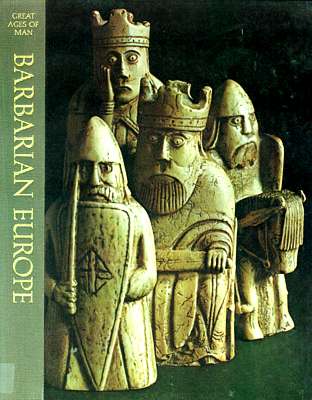This is a story about how history becomes legend. It's also, like a lot of the stories in this book, about what happens when cultures collide. It's not hard to guess that this story is inspired by Russian folktales, but it was also inspired by Russian, or rather pre-Russian history, in particular the fact that the earliest Russian cities were actually trading posts set up by Norse traders (known to the Slavs and Greeks as Varangians; the Byzantine Emperors, who were not overly fussy about distinguishing between hairy northerners, had a Varangian Guard that at times included Anglo-Saxon refugees from the Norman Conquest.) What's fascinating about this is that within just a few generations there was practically no trace of Norse culture: as F. Donald Logan put it in The Vikings in History, "in 839, the Rus were Swedes. In 1043, the Rus were Slavs."
As much as cultures get diluted, assimilated and even annihilated, they resist too: the Chinese under the Manchus, the Tibetans under the Chinese, even the English under the Normans, but I don't know any other cases where the founding dynasty of a nation was completely absorbed into the culture of the subject people. So this is a story about someone who tries to bring his culture (though it hasn't done him any favours) to a "savage" people and, though they're changed as a result, winds up one of them in memory.
It's also a story about growing up in Canada, and in Ottawa in particular. Like a lot of cities on rivers, Ottawa has a twin across the water, Hull (now technically part of the amalgamated city of Gatineau) but the division is greater than in most such cases because the two cities literally speak different languages. Though like most Ottawans of my generation I learned French growing up, Hull always seemed like a foreign country -- something only exacerbated by the fact that I my early childhood was spent during the leadup to the Quebec separation referendum of 1980. The landscape that Dasatan moves through is also very much like the country I spent my summers exploring in the Gatineau region of Quebec. In some ways this story is a twin to "The Coldest War": while that one is about surviving winter, this one is about how "summer pays for all."
Sources: I'd been in love with Ivan Bilibin's Russian Fairy Tales for years before I wrote this story, and both the text and the images were a huge influence on it. I've also always been a fan of those big Time-Life Great Ages of Man books -- I wouldn't necessarily recommend them as history but they're great for writers since they're crammed with visual material and fascinating little details: I mostly used the Barbarian Europe and Rise of Russia volumes for this story.
The material about how you find amber is all true, but I don't remember where I found it. Sorry!
#SFWAPro


No comments:
Post a Comment